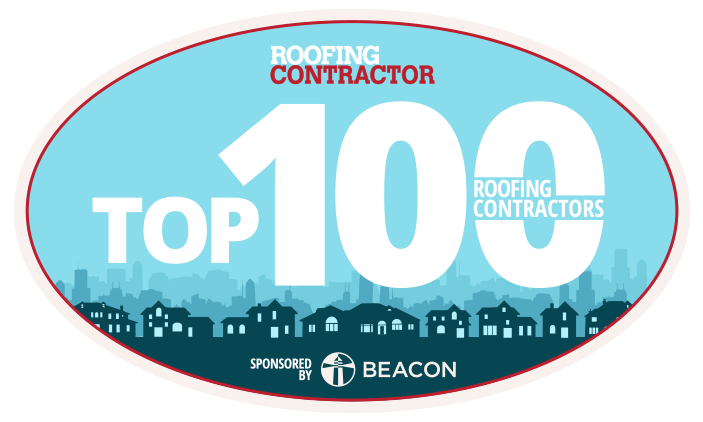Houston homeowners know that roofing can be a big investment, so understanding the average roof lifespan in Houston and the factors that affect it is essential. Houston’s intense heat, frequent rains, and occasional hurricanes can all take a toll on a roof. With the right materials and maintenance, you can maximize your roof’s longevity and keep it in top condition. Here’s what you need to know.
1. Average Roof Lifespan in Houston by Material
Different roofing materials have varying lifespans, each suited to specific weather and maintenance demands. Here’s a breakdown of the average lifespan for common roofing materials in Houston:
- Asphalt Shingles: This is the most common material, typically lasting around 15–20 years in Houston. The climate can shorten the life of asphalt shingles, especially with high heat.
- Metal Roofing: Metal roofs are extremely durable and can last 40–70 years with proper maintenance, making them a popular choice for long-term investment.
- Tile Roofing: Clay or concrete tiles can last 50 years or more, though they are heavier and require a strong structure for support.
- Wood Shingles and Shakes: With proper care, wood shingles can last about 20–30 years. However, they are susceptible to rot and require more frequent maintenance in humid climates.
- Slate Roofing: Slate is incredibly durable, with a lifespan of 75–100 years. Although more expensive, it’s ideal for homeowners looking for maximum longevity.
2. Climate Conditions in Houston
Houston’s weather has a big impact on roof longevity. The region’s humid subtropical climate, intense UV radiation, heavy rains, and severe storms can shorten a roof’s lifespan. Here are some specific ways Houston’s climate affects roofing materials:
- Heat and UV Exposure: High temperatures and direct sunlight can degrade materials causing them to dry out, crack, and lose granules.
- Humidity and Rain: Excessive moisture can lead to mold, rot, and algae growth, especially on wood shingles. This can also make roofs slippery, leading to damage if not cleaned regularly.
- Hurricanes and Storms: Houston is prone to severe weather, including strong winds and hailstorms. Metal and tile roofs tend to hold up better against these conditions, but even they can sustain damage from extreme weather events.
3. Importance of Regular Roof Maintenance
Routine maintenance is critical to maximizing roof longevity Houston homeowners can expect. Here are some roof maintenance tips to help keep your roof in good condition:
- Inspect and Clean Gutters: Clogged gutters can lead to water buildup, which causes leaks and roof damage over time.
- Trim Overhanging Branches: Branches that hang over your roof can scrape or puncture the roof, especially in windy weather. They also provide shade, leading to moss or algae growth.
- Check for Damage After Storms: Regularly inspect your roof after storms, looking for missing or damaged shingles, dents, and other signs of wear. Prompt repairs can prevent minor issues from becoming larger problems.
- Schedule Professional Inspections: Have a professional inspect your roof at least once a year, preferably before storm season, to catch any issues early and help extend your roof’s lifespan.
4. Quality of Installation
The quality of your roof installation has a significant effect on longevity. A poorly installed roof may develop issues, such as leaks or shingle misalignment, that can reduce its lifespan. Choosing a reputable contractor with experience in Houston roofing materials and local conditions is key. Proper installation, including appropriate flashing and insulation, can prevent common issues like leaks and energy loss, helping your roof reach its full potential lifespan.
5. Ventilation and Insulation
Adequate ventilation and insulation are crucial for roof longevity, as they help regulate temperature and moisture levels within your home. Proper ventilation prevents heat build-up in the attic, which can damage roofing materials. Good insulation, especially in Houston’s hot climate, reduces stress on your roof by keeping indoor temperatures stable. Without these, roofing materials may warp, buckle, or deteriorate faster.
6. Type and Quality of Materials
Not all roofing materials are created equal. Quality materials generally come with a higher upfront cost, but they pay off with longer lifespans and better resistance to local climate challenges. For example, choosing high-quality asphalt shingles or premium metal roofing will likely mean less maintenance and fewer repairs over time. Consulting a professional about the best materials for your roof can help you make a cost-effective, long-lasting choice.
7. Frequency of Roof Repairs
Regular, well-timed repairs can extend your roof’s lifespan. Ignoring small issues, such as minor leaks or loose shingles, often leads to larger problems, requiring more extensive repairs or even early replacement. Investing in small repairs over time can keep your roof in good shape and prevent premature aging. Following roof maintenance tips and addressing issues promptly can significantly extend the time between full replacements.
Maximize Your Roof’s Lifespan with Royal Roofing Texas
A roof is one of the most important elements protecting your Houston home. By selecting the right materials, keeping up with routine maintenance, and addressing repairs promptly, you can extend your roof’s life and get the best return on your investment. Let the experts at Royal Roofing Texas, a trusted roofing company in Houston, TX, help you maintain and protect your roof, so it can stand up to Houston’s demanding climate.
Ready to take the next step? Contact Royal Roofing Texas today for a professional roof inspection, and let us guide you on the best ways to preserve your roof’s longevity!

